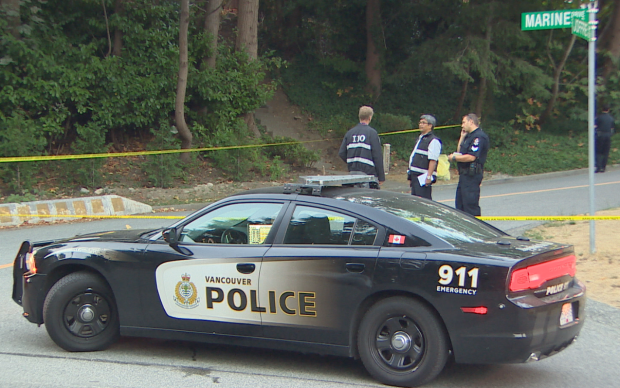Myles Gray case highlights flaws with IIO, police accountability advocate says
A long-time police accountability advocate is pointing to the case of Myles Gray as an illustrative example of flaws with the Independent Investigations Office.
The IIO, created nearly seven years ago to provide civilian oversight of police in British Columbia, just completed a probe into the 2015 death of Gray, a 33-year-old who died after a violent struggle with Vancouver police.
The case was handed to the B.C. Prosecution Service this week.
"One of the tragic aspects of this case is the fact that it's taken over three years," said Doug King, a former police accountability lawyer with Pivot Legal Society.

Challenge with witnesses
Part of the reason for the lengthy investigation was a months-long standoff over the responsibility of witness officers to co-operate with investigators. The IIO resorted to filing a petition in B.C. Supreme Court to get one VPD officer to sit for an interview.
"The IIO really struggled in this case to compel the police to get the full story and, ultimately, one of the great failures has been the inability to convey that to the general public," King told CBC's The Early Edition.
No official cause of death has been released, but court documents say Gray suffered significant injuries in his struggle with police officers, including broken bones and a fractured larynx.
According to the IIO, as many as eight VPD officers were involved in the incident — and those officers are the only witnesses to Gray's death.
'Right to a fair trial'
Ron MacDonald, chief civilian director of the IIO, agreed that it's important for the public to have the necessary information to hold those in charge to account.
Since taking the job in 2017, MacDonald said he's focused on increasing the number of publicly available reports — doubling them in the past fiscal year.
"The point of that is to tell people not only what our decision was but what's the background to that decision," he said.
But for cases that are or will be before the Crown, like Grey's, the IIO won't release details that could impact a fair trial, MacDonald explained.
"It will always be the case that while our investigation is ongoing, pending a decision on whether or not it should be referred to the Crown, we won't be discussing the facts in any great detail," he said.

'Rocky road' to answers
King maintains that more information about the delays should have been shared with the public.
"The IIO will not be an effective organization if they don't bring the public along into the process and if they don't ultimately share what they know with the public," he said.
King described the path to police accountability in general as a "rocky road" to get answers when law enforcement is potentially involved in the wrongdoing.
"The Gray case shows that we still have a select group of people deciding whether or not police will be accountable for their actions," he said.

